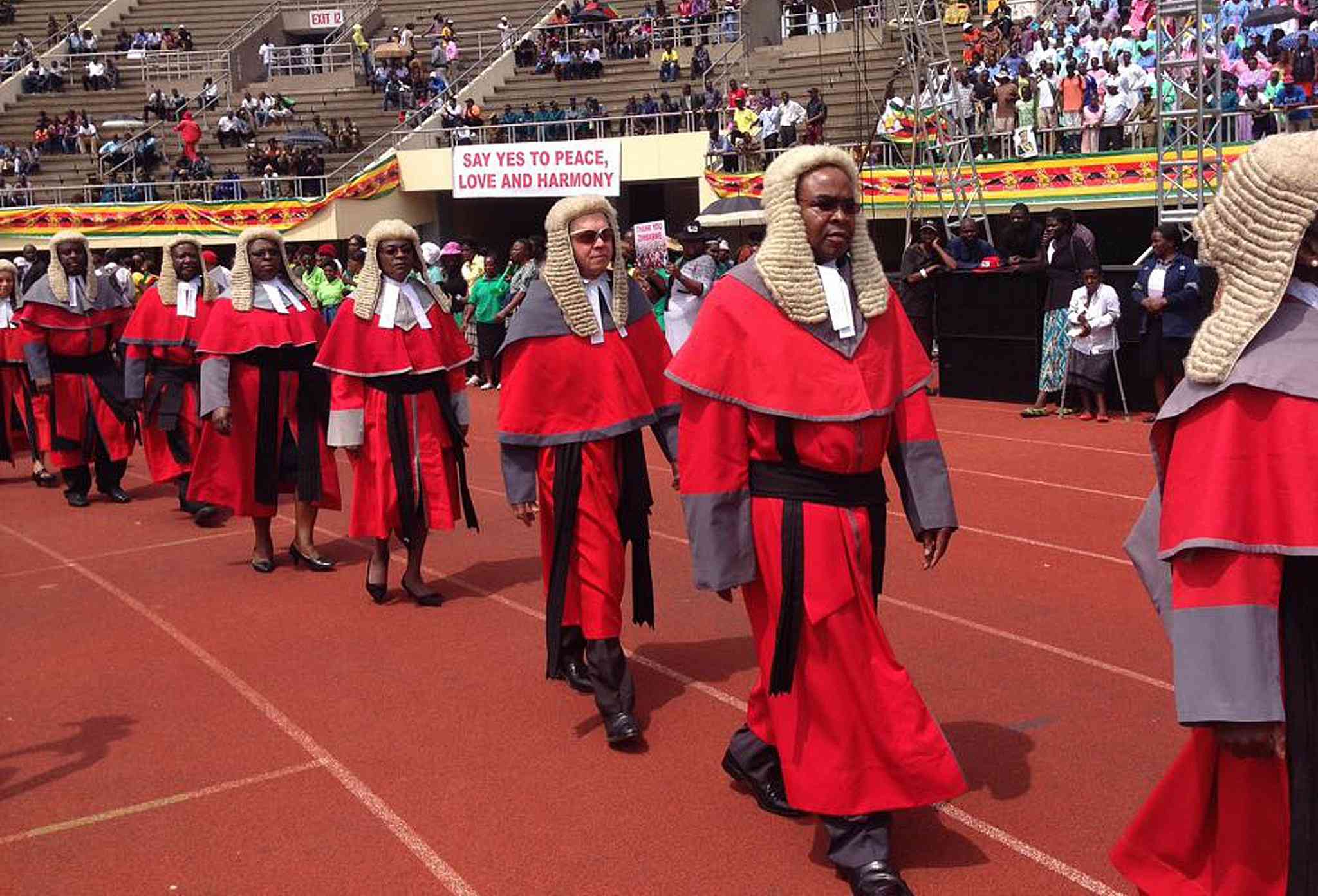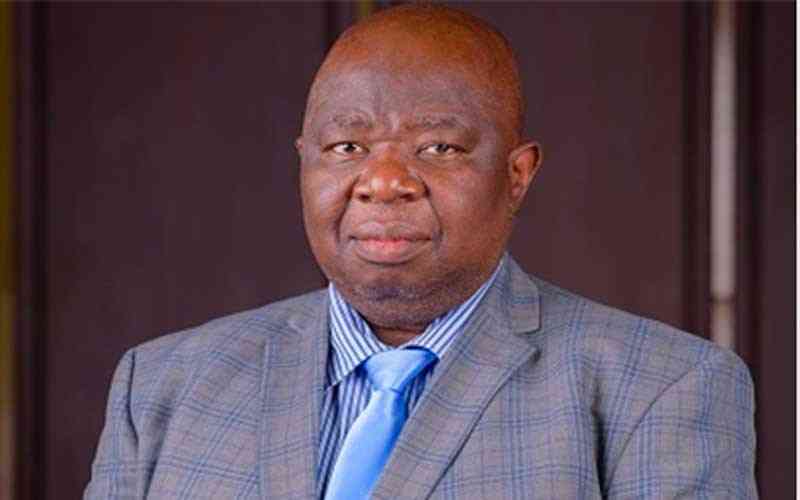
SENIOR civil servants are distinguished government employees, who include permanent secretaries, directors of the various ministries, deputy-directors, leaders of all parastatals and government agencies.
Enhancing the way that they perform in their roles can provide an effective way of improving the provision of public goods and services to all citizens.
Attention should also be directed at other top public officials, who are not necessarily referred to as civil servants. These include judges of the Supreme Court and other such senior officers of the government.
When the top government officers and senior civil servants are professional and competent, their juniors will also follow their lead. It is also crucial to emphasise that in this article, ministers are not regarded as senior civil servants but political appointees of the President, who serve and can be dismissed at the President's pleasure.
The professionalisation of the civil service refers to the fair selection processes, which choose the most competent appointees (civil servants), regular performance evaluation of the appointees and ensuring that civil servants are not politically-aligned (biased), in the execution of their duties.
Professionalisation is critical because all over the world, politicians have an inclination to appoint senior civil servants, who are known to be supportive of their political ideologies, factional ambitions, or their desire for patronage, which typically results in easy access to corrupt activities.
Obviously, the biased selection of senior civil servants affects some countries more than others. In economically and socially-advanced nations, it is very limited.
However, Africa is amongst the worst of the countries, which are negatively affected by this. This is why it is essential for African countries to discuss such matters thoroughly, before they slip on a downward path.
- Mavhunga puts DeMbare into Chibuku quarterfinals
- Bulls to charge into Zimbabwe gold stocks
- Ndiraya concerned as goals dry up
- Letters: How solar power is transforming African farms
Keep Reading
Lessons from SA and Zim's past
The argument for a professional civil service can only make sense if the history of the selection of incompetent senior civil servants in the past is revisited. Both South Africa and Zimbabwe provide good examples and their situations will be described below.
In South Africa, the rise of the National Party, which won the most votes in 1948 began to solidify repulsive racism (apartheid) and white-nationalism at very disgraceful levels. The National Party-led government ensured that black South Africans could not work in civil service, particularly in areas where whites predominantly resided.
Also, among the whites themselves, Afrikaner-nationalism (favouritism), was also a thing, as the government favoured Afrikaners (South African whites mainly of Dutch origin) in civil service and other jobs, instead of white people of English origin and from other European countries.
As a result, the highest public offices (senior civil service) were mostly occupied by Afrikaner whites. The National Party went on to expand jobs in the civil service in order to reduce white people’s poverty and also advance their political interests among the white population.
Unfortunately, the segregation resulted in an extremely inefficient civil service, which ended up with considerable unfilled vacancies in the highest positions because there was a shortage of skilled Afrikaner whites, capable to fill those roles.
Eventually, when South Africa attained democratic governance (in 1994), through the African National Congress (ANC), there was a serious lack of trust between the ANC and whites in the civil service, particularly the senior civil servants.
The ANC was not confident that the senior white civil servants would act in complete support of their political ideology and vision. To address this, in 1997, the ANC government introduced the Cadre Policy and Deployment Strategy.
This policy meant that the government (particularly ministers of the ANC) would recommend the appointment of people with similar political ideology to the ANC in senior civil service roles.
Consequently, ANC cadres (members) or those ideologically aligned to the government began to dominate the civil service. Unfortunately, this also resulted in the appointment of senior civil servants, who were not necessarily the most qualified or the most competent, since competence played a secondary role in the selection process.
This began to reflect in poor service delivery. There was a deterioration in the quality and availability of public goods and services (water, electricity, rail services, education, healthcare, sewage and solid waste disposal, etc), whilst state-owned enterprises began to fail.
From the time that president Jacob Zuma became the head of state in 2009, the Cadre Policy began to be used to fight ANC factional fights and grow political loyalties within the party. This led to a further decline in service delivery (of public goods and services) and state-owned entities.
Expectedly, when President Cyril Ramaphosa replaced former president Zuma, changes were effected in key civil service positions, as Ramaphosa sought to work with senior civil servants whom he trusted to be loyal to his vision.
The recent 2024 general elections are also set to effect further changes in key civil service positions, since some political parties within the proposed Government of National Unity (in South Africa) are already requesting for changes in such key posts.
The Democratic Alliance (DA), for example, clearly stated its intention to replace the senior civil servants in all the ministries and state-owned entities (parastatals) that it will be responsible for in the new government.
This should be a matter of serious concern because the regular changes of senior civil servants can disrupt the entire public service from benefitting from the experience of old leaders.
Moreover, if the unity government is dissolved in the future, due to disagreements among its different political parties, more changes of senior civil servants can be expected.
In Zimbabwe, some senior civil servants are already accused of being politically-aligned even in the execution of their roles. This applies to both Zanu PF and the Citizens Coalition for Change (CCC) political party.
The recruitment and monitoring of senior civil servants is also regarded by some critics as being biased on political grounds. For example, in an interview on the YouTube talk show "In Conversation with Trevor", former Confederation of Zimbabwe Industries CEO, Dr Joseph Kanyekanye posited that several Zimbabwean parastatals were increasingly collapsing because they typically go through leadership changes, whenever there is a new minister responsible for them.
The National Social Security Authority (Nssa), for example, has had to replace senior roles of both the board chairperson and general manager within less than five years (from 2019).
The unfortunate issue with senior civil servants appointed on a political basis is that some of them can end up dedicating their carriers to corruption, instead of the professional delivery of their official duties.
If politically-directed appointments continue, the emergence of new political authorities will continue to cause the flux (constant change) of senior civil servants.
Each governing political party will choose civil servants whom it trusts.
This is why it is critically important to professionalise the public service.
With professionalisation, any new governing party will be able to trust the senior civil servants which it finds already in place.
On the other hand, an unprofessional civil service will perpetuate the culture of bribes, long queues and disregard for citizens, which characterises some government agencies at the moment.
Furthermore, inefficient public entities (including parastatals) under unprofessional civil servants do not bode well for economic growth.
Rather, they lead to economic decline and a loss of critical job-creating opportunities.
How it can be done
In order to professionalise the senior civil service, the government may set up a specialised panel, which will be responsible for the recruitment, management and performance evaluation of senior civil servants.
As a means to secure confidence in the panel, it may be mandated to comprise various experts from the country's most prominent political parties (which are Zanu Pf and CCC in Zimbabwe's case).
If the political leadership prefers an independent panel, then experts who are not politically-aligned, may be invited to constitute the panel.
The panel should have various experts whose skills can evaluate senior civil servants in each government ministry and agency, according to the ability of its members. This also implies that it should be a broad panel, which functions under different specialist branches such as parastatal oversight, national security, legal affairs, economics, innovation and training, etc.
Establishing such a panel would lead to the appointment of the most qualified or the most competent individuals to serve as senior civil servants.
Once appointed, each senior civil servant should be issued with a non-political job description, which highlights the duties and targets required of them in their new role.
As a means to ensure that the civil servants are performing as required, the panel can do performance evaluations once or twice per year.
The evaluations will analyse whether or not the appointees have been fulfilling their targets and expectations.
This should go a long way to reduce corruption and other incidences of abuse of office. Since independence (in 1980) a number of senior civil servants were implicated in gross corruption although they faced no detrimental consequences.
This was mainly because there were no independent experts regularly and capably evaluating their performance. If the evaluation identifies the excellent performance of a particular civil servant, then that employee (civil servant) will have his (or her) employment contract extended.
The panel can also recommend the best performing senior civil servants for ministerial positions or leadership roles in other government departments.
On the other hand, if the panel identifies poor performance, negligence or corruption, it can immediately suspend or dismiss the appointee.
The panel may also employ some retired judges who can be utilised when some senior civil servants are accused of corruption or unethical practices. The judges would then serve to recommend an immediate dismissal if the case against the appointee (civil servant) shows the likelihood of their guilt. This would be useful because criminal investigations on senior civil servants (handled by the police or the Zimbabwe Anti-Corruption Commission) can take years to be finalised, whilst the perpetrator continues in their role.
In other cases, some criminal investigations lead to zero, or just a few convictions, because through the passage of time, the perpetrators can bribe investigators.
The panel can also be responsible for ensuring that the senior civil servants regularly receive training on the latest trends and technologies in their fields.
These technologies may include artificial intelligence (AI) and blockchain technology, for example. Once trained, the senior civil servants can then promote the implementation of such technologies within their respective government departments. Ideally, the training sessions should encourage the integration (mixing) and networking of senior civil servants from different government departments.
This would give rise to the spirit of competitiveness and excellence among them. The networking would also increase the cost of poor performance, since the poor performers would potentially be embarrassed when they meet some of their peers who are known for excellence.
Conclusion
In conclusion, Zimbabwe needs to professionalise its senior civil servants, at the earliest convenience. This is so as to avoid the flux (constant replacement) of senior government officials, whenever there is a change in political leadership.
When professionalism is adhered to the appointment of incompetent political-loyalists will no longer be an impediment to the country’s development. A professional senior civil service will also promote excellent delivery of public goods and services, along with strong economic growth.
- Tutani is a political economy analyst. — tuanikevin@gmail.com.










